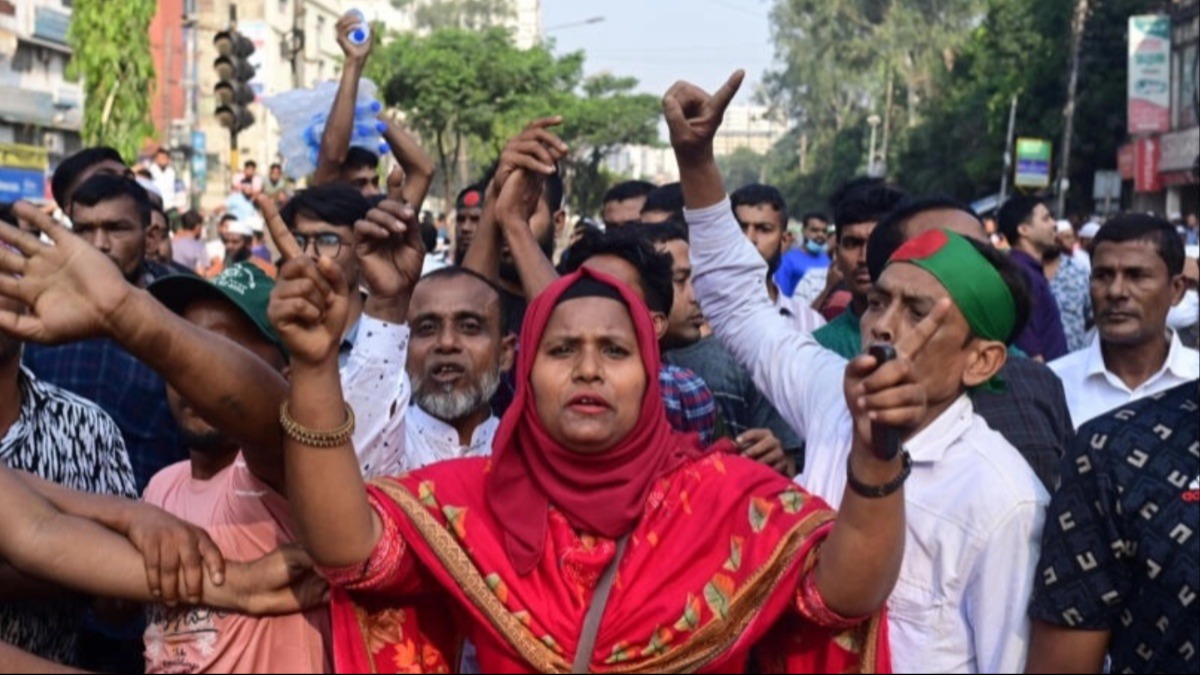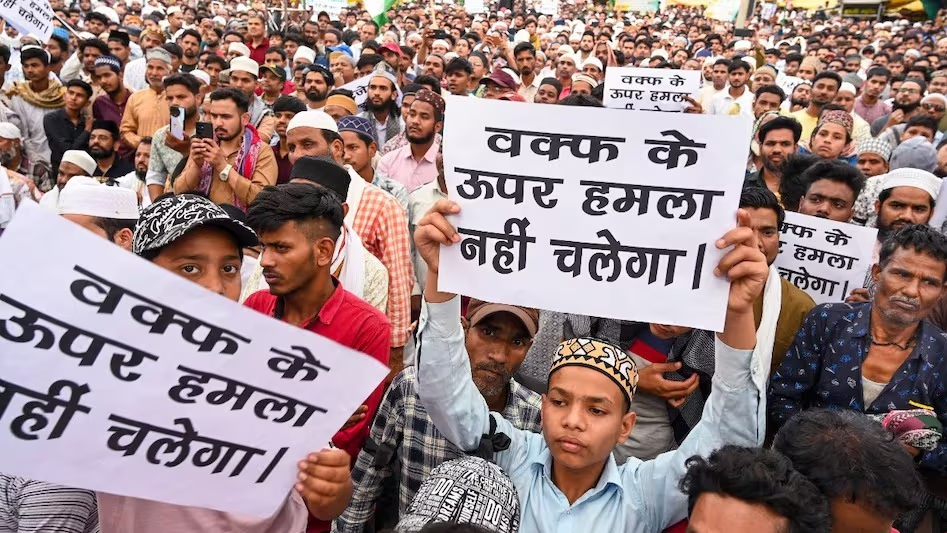In Bangladesh, despite having a government that maintains friendly relations with India, the opposition is vigorously running an anti-India campaign. The opposition party, Bangladesh Nationalist Party (BNP), is spearheading a campaign similar to Maldives' 'India Out' initiative. This movement aims to completely eradicate Indian influence in Bangladesh and is also calling for a boycott of Indian goods. The party is fostering an anti-India and anti-Hindu atmosphere in Bangladesh and spreading venom against India through social media.
Senior leaders of Bangladesh's opposition party are openly issuing anti-India statements. The situation has escalated to the point that BNP's prominent leader, General Ruhul Kabir Rizvi, recently showed support for the 'India Out' campaign by setting fire to his Kashmiri shawl. Rizvi's incendiary rhetoric asserts that India supports the Awami League—led by Sheikh Hasina—rather than the people of Bangladesh.
Prime Minister Sheikh Hasina is striking back against the opposition's 'India Out' campaign. Commenting on Rizvi's shawl-burning incident, she suggested that one could only believe in the opposition's commitment to boycotting Indian goods if its leaders start burning their wives' Indian sarees. Amidst the opposition's boycott efforts, Hasina's government has decided to continue importing large quantities of onions from India.
Why has the 'India Out' campaign started in Bangladesh?
Recent general elections in Bangladesh saw a unilateral victory by Sheikh Hasina's Awami League, as the opposition boycotted the elections. The opposition accuses India of influencing these victories. China is also exploiting the opposition's resentment towards the Hasina government and India. Like Maldives, efforts to create an anti-India atmosphere in Bangladesh are underway.
Even though the pro-India Hasina government continues to win elections in Muslim-majority Bangladesh, anti-India sentiment is growing rapidly. An example of this was witnessed during the Cricket World Cup 2023 on November 19 last year, when Australia's victory over India was celebrated like a festival in Bangladesh. Thousands gathered at the University of Dhaka campus to protest against the Indian team.
This anti-India sentiment is not limited to cricket. Analysts suggest that anti-Indian sentiment has been on the rise among Bangladeshis in recent years. They attribute this to allegations of the Bharatiya Janata Party's anti-Muslim stance, which does not sit well with Muslims in Bangladesh. But driving most anti-India sentiment is India's support for the ruling Awami League, which has remained in power for the last 15 years, a fact constantly highlighted by the BNP activists.
Use of social media for anti-India campaigning
'India Out' is a campaign supported by millions of BNP backers. Social media accounts are created to intensify the campaign, such as the verified account '@revolt_71' that routinely posts anti-India tweets. One tweet sharing a video states, 'The majority of Bangladesh does not favor India-backed Sheikh Hasina. India has forcibly imposed her rule upon us. We demand Hasina resign and India get out (India Out).'
Online, anti-India activists write statements like 'India is not a friend of Bangladesh' and 'India is ruining Bangladesh.'
Who is leading the 'India Out' campaign?
There are reports claiming that Tariq Rahman, son of former Prime Minister and BNP leader Khaleda Zia, is leading the anti-India campaign in Bangladesh. Tariq Rahman, twice Prime Minister of Bangladesh Khaleda Zia's son, was sentenced to 10 years in prison in 2018 after being found guilty of inciting terrorism. He was convicted for his role in a terrorist attack at an Awami League rally on August 21, 2004.
Tariq Rahman, living in London, is accused of playing a significant role in stirring anti-India sentiment within the party and wants Bangladesh to follow in the Maldives' footsteps. Under Rahman's leadership, the BNP is aggressively promoting the 'India Out' campaign via social media.
A Dhaka newspaper wrote about Rahman's 'India Out' campaign, stating, 'From London, a convicted terrorist and acting chairman of the BNP, Tariq Rahman, has directed party leaders and activists to start an anti-India movement and incite anti-Hindu sentiment in Bangladesh, similar to the Maldives. The party's cyber wing has begun spreading hate towards Hindus and India on social media platforms.'
Why is Bangladesh vital for India and countering China's influence?
India is surrounded by neighbors like China, Pakistan, and Maldives, with which it has tense relations, but it enjoys strong ties with Bangladesh, which is a relief. The two countries are important allies in areas such as water resources, rail, technology, space, and science.
Although Sheikh Hasina's government has signed hundreds of agreements with China concerning development, it has not allowed China to interfere in foreign policy decisions.
The Hasina government has played an important role in curbing anti-India activities. It has handed over several separatist leaders, including ULFA leader Arabinda Rajkhowa, to India.
If anti-India sentiment in Bangladesh grows and China succeeds in its aspirations, it could become a significant headache for India. Not only could the threat of terrorism from Bangladesh increase, but China could also build infrastructure to spy on Indian states bordering Bangladesh, as it has done in Sri Lanka. For the Indo-Pacific region, India's alliance with Bangladesh is crucial to counter China's rising influence.
China's endeavors to pit neighbors against India
China has been continuously provoking India's friendly nations. By offering development and infrastructure as bait, China has a knack for trapping India's economically weaker neighbors in its debt. Sri Lanka serves as the biggest example. President Xi Jinping's 'Belt and Road Initiative' (BRI) is accused of ensnaring weaker countries in a debt trap, exploiting their resources. China, however, denies these allegations.
China has also heavily invested in Bangladesh through BRI and is establishing dominance in everything from airports to underwater tunnels. According to the American Enterprise Institute (AEI), China has invested a total of $7.77 billion in Bangladesh, with Chinese companies securing $22.94 billion in construction contracts.
As China strives to increase its influence in Bangladesh under the guise of development to sway an important Indian neighbor, the opposition's 'India Out' campaign in Bangladesh is becoming a cause for concern for India.




